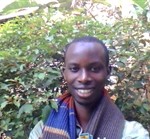- 31 Jul, 2014
- 0
- Foday Darboe
- PeaceVoice
Today’s Survivors May Be Tomorrow’s “Enemies”
AVAILABLE FOR REPRINT. Copy and use freely. Please help PeaceVoice by notifying us when you use this piece: PeaceVoiceDirector@gmail.com

“More than 10,000 people have died and 1.5 million are displaced in South Sudan’s current violent conflict amidst the destructive rhetoric of rivals President Salva Kiir and former President Riek Machar. UNICEF reported that 9,000 children have been recruited or abducted as child soldiers by both sides. Alongside the report, 23-year-old Ring Placido describes his experience as a former member of the South Sudanese children’s battalion, “Nyony,” at the age of six: “’I was very frightened and upset to be taken from my mother … But I could not show fear or sadness, because they would have beaten me. I had no choice but to become one of them.’””
Author: Ibrahim Bahati
Published in: Counter Punch http://www.counterpunch.org/2014/08/01/todays-survivors-may-be-tomorrows-enemies/, Huntington News http://www.huntingtonnews.net/92190, Las Vegas Informer http://lasvegas.informermg.com/2014/07/31/todays-survivors-may-tomorrows-enemies/, The Times of Earth http://www.timesofearth.com/read/todays-survivors-may-be-tomorrows-enemies.html, Pagosa Daily Post http://www.pagosadailypost.com/news/26410/ESSAY:_The_Global_Refugee_Crisis_Worsens/, The Portland Alliance http://www.theportlandalliance.org/hastings/, Sierra County Prospect http://www.sierracountyprospect.org/2014/08/06/how-we-can-help-8614/
Date: July 28,30,31,August 1,2,6,2014
For the full article:
Today’s Survivors May Be Tomorrow’s “Enemies”
563 Words
By Ibrahim Bahati
More than 10,000 people have died and 1.5 million are displaced in South Sudan’s current violent conflict amidst the destructive rhetoric of rivals President Salva Kiir and former President Riek Machar. UNICEF reported that 9,000 children have been recruited or abducted as child soldiers by both sides. Alongside the report, 23-year-old Ring Placido describes his experience as a former member of the South Sudanese children’s battalion, “Nyony,” at the age of six: “’I was very frightened and upset to be taken from my mother … But I could not show fear or sadness, because they would have beaten me. I had no choice but to become one of them.’”
At the same time, members of South Sudan’s Red Army Foundation celebrated their second anniversary, on July 29th, 2014, of transitioning from an organization of violence and warfare to one of peace and welfare. Members of the Red Army Foundation include hundreds of former child soldiers in South Sudan who have dedicated themselves to reviving their homeland through social services, education and similar peacebuilding initiatives.
People are not born as psychopaths engineered to kill. In an environment of fear and survival, people – especially children – learn to believe that violence brings glory, killing brings peace and suffering brings justice. In the same way, people have the capacity to transform their beliefs and value positive, constructive and peaceful methods of conflict management.
If we want peace in South Sudan, Gaza, Syria, Iraq or any other nation, if we want to be effective peace activists, change-makers or conflict managers, it’s imperative that we ground our understanding of violent conflict in structures of violence that produce favorable conditions for war. We have to understand that violence is produced, not some inevitable innate response, and if we don’t restrain violence now by supporting peacebuilding initiatives and nonviolent conflict management methods, we’ll only nurture more violence for the future.
The US, Israel and Western-European states like France, Britain and Germany are caught in a self-perpetuating web of violence and terrorism. The leaders of these nations often blame “jihadists,” “extremists” or certain races, religions, and nationalities for global terrorism. Yet, few today question the roots of this violence. Who engineered the gas chambers at Auschwitz? Who pioneered imperialistic habits that differentiated between “civilized war” and “colonial war” that lead to the rationalization of mass killings of indigenous populations? The US and its allies have indeed failed to recognize the simple truth that some of today’s “enemies” are yesterday’s survivors. Neglecting to examine these structural, historical (and present) and cultural root causes of violence makes it easy for leaders to justify more violence in the name of peace.
Forced democracy, invasions, military strikes and “operations” are unlikely to create or sustain peace and will likely nurture more enemies for coming generations. Fortunately, nonviolent counterterrorism methods, peacebuilding initiatives like The Red Army Foundation, and other sustainable peace options exist already. Insight on Conflict hosts a list of peacebuilding organizations in South Sudan, as well as in Iraq, Israel and Palestine. Recognizing the root causes of violence, ending the perpetuation of these causes and supporting these organizations working toward sustainable peace is the only way we can end today’s violent conflict and prevent those of tomorrow. Imagine if war preparation were even somewhat defunded and peace preparation were funded a bit more–we could close the gap from war to peace much more often.
~~~~~~~~~~~~~~~~~
Ibrahim Bahati (bahabris@gmail.com), based in Kampala, Uganda, has a degree in Development Economics, volunteers with The Global Education Conference Network and as a communications teacher for Peace for Children Africa and writes for PeaceVoice.
© 2023 PeaceVoice
peacevoice